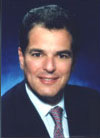Travelers Prefer Innovation, Creativity Over Predictability, Discount Pricing | by Rick Swig
Independent, or boutique, hotels are setting new competitive standards for products and serviceDuring the year ahead, most major markets are predicting upturns in occupancy and ADR as the economy expands and more commercial travelers hit the road. Although many hotel operators remain unconvinced that the individual business traveler has returned in full force, the pace of group bookings in both urban and resort locations is ahead of recent years. That’s the good news.
It will be more of a challenge for hotel operators to capture market share. Hotels will again compete for business based on their product and service attributes, rather than their sales department’s ability to discount rates. Major chain operators have also learned that their loyalty program members may not be so loyal. Customers can often find better rates through a multiplicity of points-program memberships. The success of independent hotels may provide a hint to the larger brands that there is more to life for customers than cut-rate discounts and loyalty programs.
Technology has leveled the competitive playing field via the Internet and user-friendly booking engines. Customer relationship management technology will present further personal service and identity options to overshadow loyalty program credit value.
Smith Travel Research reports that independent hotel occupancy performance and ADR trails full-service national brand hotel performance in most competitive markets. However, independent, or boutique, hotels are setting new competitive standards for products and service.
Trendy design, although credited for much of boutique hotels’ success, is only one element by which differentiation and resulting market penetration is achieved. A complete environmental focus is necessary, which includes product and service delivery to address customer needs and preferences. This begins with the booking process and extends through after-stay recognition and subsequent communications. Customer satisfaction goes beyond an efficient check-in and sleep experience. Value enhancement is more than just a discounted rate. The focus now is on quality of life.
Boutique hotels in the industry are synonymous with independent record labels and film studios. These entities have strategically defined their customers as interested in more than a formula blockbuster—they are looking for something new with which they can identify socially, spiritually or environmentally. Smart hotel operators are aware of these differences and are sculpting hotel experiences to reflect this diversity and need for personal identity.
Independent hoteliers were the first to recognize and address these fundamental issues. These pioneer tastemakers are forcing the traditional hotel operator community to recognize that fashion and entertainment are key elements of differentiation. Historically, hotels provided cus-tomers with surroundings, services and amenities, which were enhancements over their at-home experience. This is not entirely true today, as many hotels have cut services, slowed capital improvements and have fallen behind the domestic technology curve in the wake of recent revenue downturns. Predictable and mundane experiences are often the norm versus memorable and creative experiences. Customers are now making choices between tangible experience or environmental value versus discount pricing and the ordinary.
Starwood’s Heavenly Bed program, for instance, established that travelers place a real value on comfort-able sleep. Ian Schrager and a flock of his disciples have confirmed that guests will forego their generic brand experiences for a combination of fashion and the “right” scene. Meanwhile, the Kimpton Group’s Monaco collection, along with the W Hotel brand, are proving that environmental distinction can be delivered in multiple destina-tions and in non-generic building formats. These hotels and features enhance travel life and provide more than a voyager gets at home.
Large brands have taken notice. Marriott and Hilton are rolling out more creative designs and stimulating environments, while the Indigo brand shows InterContinental’s recognition that today’s customers are looking for more than their parents’ Holiday Inn.
Rick Swig
Phone: (415) 541-7722
Email: rickswig@rsbaswig.com
RSBA & Associates
www.rsbaswig.com
400 Spear Street, Suite 106
USA - San Francisco, CA 94105
Phone: (415) 541-7722
Fax: (415) 541-5333
Email: rickswig@rsbaswig.com
Lenders to Lodging Industry Must Come Out of Their Foxholes | By Rick Swig, ISHC
Pricing to profit | By Rick Swig
Hotel Real Estate Owners Face a Brave New World | By Rick Swig, ISHC

